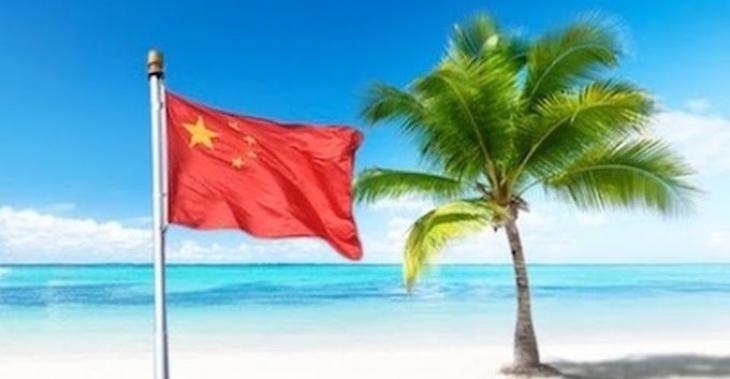
By Sir Chatty, Docked Somewhere Between Diplomacy & Drama
Paradise in the Crosshairs
The Caribbean, once a quiet playground of sun, sand, and slow diplomacy, has become the new chessboard of superpower strategy. While the West sips rum and debates climate talks, China is busy building ports, paving highways, and loaning billions — all wrapped in silk and stamped with the red star of the Belt and Road Initiative.
But what does this mean for the islands?
And who really owns the dock when the banana boat pulls in?
Enter the Billionaire
No Caribbean saga is complete without a jet-setting mogul. Enter stage left: tycoons from Miami, Dubai, and even Shanghai, eager to snap up beachfront property, logistics hubs, and digital infrastructure.
Some partner with China. Others resist. But all feel the tremor of a tectonic shift:
-
Private ports backed by state loans
-
Luxury resorts co-financed with Chinese contractors
-
Smart cities and e-surveillance creeping into Caribbean capitals
As one Bahamian official whispered off-record:
“They come with smiling faces and full pockets — and leave with the keys to the kingdom.”
The Banana Boat and the Debt Dilemma
Remember when the banana boat symbolized simple trade?
Now it’s part of a new global equation.
-
China promises infrastructure-for-access deals: roads, bridges, and ports in exchange for trade rights and strategic outposts.
-
But some nations find themselves drowning in debt, with Beijing holding the lifeboats.
Take Jamaica — deep in infrastructure upgrades but now juggling $2 billion+ in Chinese debt. Or Guyana, where new highways seem to come with strings thicker than the asphalt itself.
The Belt, the Road… and the Binds
The Belt and Road Initiative (BRI) is China’s globe-spanning, trade-tentacled mega-strategy.
In the Caribbean, it means:
-
Soft power in hard places: stadiums, hospitals, and conference centers with Chinese flags quietly flying.
-
Strategic positioning: access to Atlantic shipping routes, influence over votes in the UN, and proximity to U.S. waters.
-
Silent deals: contracts with no public debate, few safeguards, and long repayment horizons.
Some call it mutual progress. Others call it economic colonialism with a new accent.
Island Governments at a Crossroads
For small Caribbean nations, the choice is tough:
Quick development, easy money
Long-term sovereignty at risk
Many governments find themselves dancing a delicate calypso — trying to attract investment without losing autonomy.
As the late-night calypso lyrics go:
“The road is nice, the bridge is strong — but tell me who it really belong?”
Final Word from the Island Watchtower
The billionaire builds, the banana boat docks, and the Belt and Road winds tighter.
The Caribbean is no longer a quiet harbor — it’s a hot zone of influence, ambition, and high-stakes diplomacy.
For the islands, the question is no longer if the world is watching…
…it’s who is writing the script.




